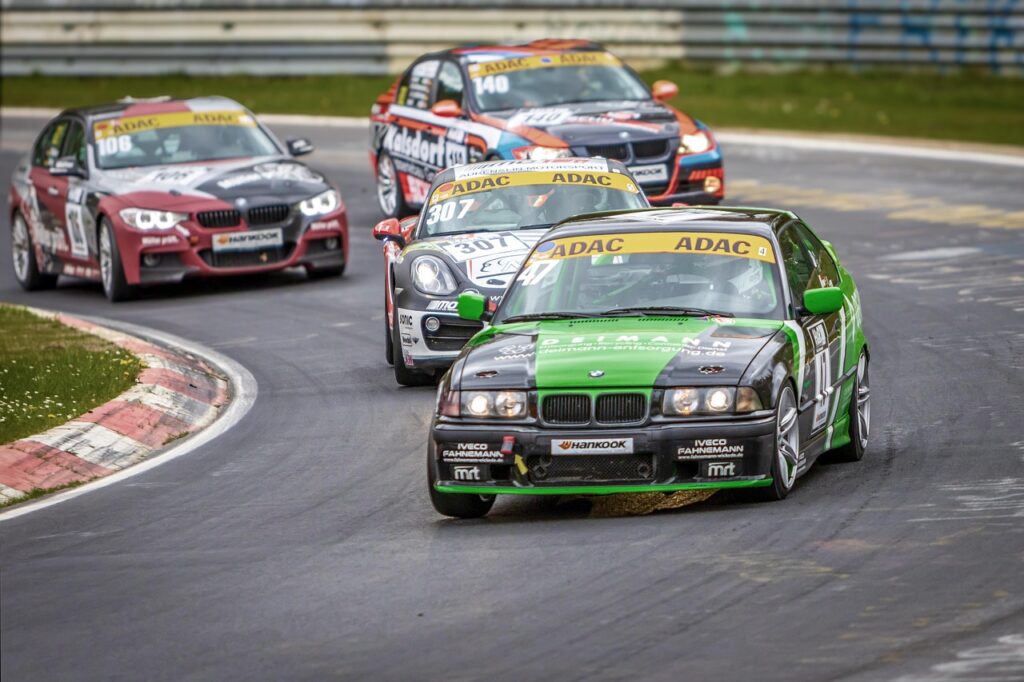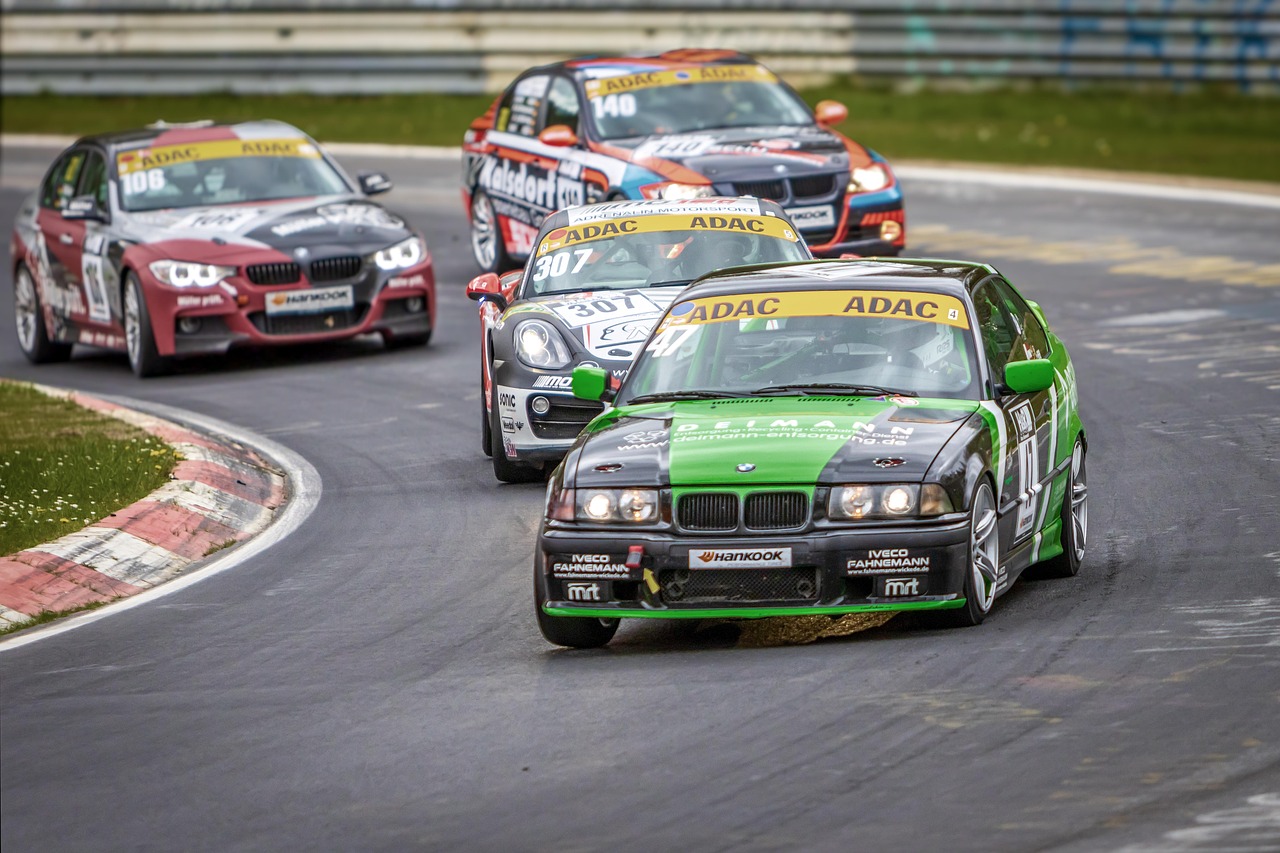Dreaming of tearing up the racetrack like Lewis Hamilton or Max Verstappen? Motorsport is an exhilarating world of speed, skill, and strategy, but breaking into it can feel daunting for beginners. Whether you’re a teenager itching to race or an adult looking to chase a lifelong passion, this guide will show you how to get into motorsport with practical, actionable steps.
From karting to securing a racing license and finding sponsors, we’ll cover everything you need to kickstart your racing career in 2025.
Motorsport isn’t just for the elite—drivers like Sébastien Loeb started with modest means and built legendary careers through grit and smart choices. With the right approach, you can too. Let’s get into the steps to get into motorsport and make your racing dreams a reality.
Why Start with Karting? The Foundation of Motorsport

Karting is the gateway to motorsport for most aspiring racers, offering an affordable and accessible way to hone your skills. Here’s why it’s the perfect starting point:
- Affordable Entry: Karting costs range from $50–$200 per event for rentals, compared to thousands for car racing.
- Skill Development: Karts teach precision driving, cornering, and racecraft in a controlled environment.
- Scouting Opportunities: Many F1 drivers, like Verstappen and Hamilton, were spotted in karting championships.
How to Get Started in Karting
- Find a Local Track: Search for karting facilities near you (e.g., “karting tracks near me”). Websites like Motorsport UK list certified tracks.
- Try Rental Karts: Rent a kart for a day to test the waters. Costs typically range from $20–$50 per session.
- Join a Karting League: Competitive leagues, like Cadet Karting (ages 8–12) or Junior Karting (ages 12–16), build experience.
- Invest in Equipment: If hooked, buy a used kart ($1,500–$3,000) and safety gear (helmet, suit, gloves: ~$500).
Pro Tip: Practice consistently to improve lap times. Karting champions often train 2–3 times weekly.
How to Get Into Motorsport: A Roadmap for Beginners
To help you get into motorsport, here’s a concise roadmap optimized for featured snippets:
5 Steps to Start Your Motorsport Career
- Begin with Karting: Develop driving skills at a local karting track.
- Get a Racing License: Apply through Motorsport UK or SCCA (details below).
- Join Amateur Events: Compete in autocross, rallycross, or track days (~$50–$300/event).
- Secure Sponsorship: Build a personal brand to attract sponsors (tips below).
- Enroll in a Racing School: Gain advanced skills through programs like Skip Barber or Bondurant.
This roadmap provides a clear path for beginners to progress from karting to competitive racing.
Getting a Racing License: Your Ticket to the Track
A racing license is essential for competitive motorsport. In 2025, governing bodies like Motorsport UK and the Sports Car Club of America (SCCA) oversee licensing.
How to Get a Racing License
- Age Requirements: Typically 16+ for cars, 8+ for karting.
- Complete a Course: Attend an Approved Racing School (ARS) course, such as Motorsport UK’s ARDS test (~£300–£500).
- Pass Medical and Written Tests: Ensure physical fitness and knowledge of racing rules.
- Apply for a License: Submit your application through Motorsport UK (£60–£100 annually) or SCCA (~$100/year).
Cost: Expect $500–$1,000 for training and licensing fees.
Finding Sponsors: Fueling Your Motorsport Dreams
Motorsport is expensive—karting alone can cost $5,000–$10,000 annually, while formula racing reaches six figures. Sponsorships are critical to offset costs.
Strategies to Attract Sponsors
- Build a Personal Brand: Use Instagram and YouTube to showcase your journey. Include keywords like “motorsport marketing” in your bio for SEO.
- Network Online: Join motorsport groups like Pit Lane Connections on Facebook or follow industry leaders on LinkedIn.
- Target Niche Brands: Approach companies like MX-5 parts suppliers if racing Miatas.
- Create a Sponsorship Proposal: Highlight your value (e.g., social media reach, race results). Tools like Canva offer free templates.
Success Story: Sébastien Loeb funded his rally career through local sponsorships while working as an electrician, proving persistence pays off.
Pro Tip: Engage sponsors with consistent content—post race highlights, training clips, and behind-the-scenes stories.
Joining a Racing School: Accelerating Your Skills
Racing schools provide professional coaching and track time, bridging the gap between amateur and competitive racing.
Top Racing Schools in 2025
- Skip Barber Racing School (USA): Offers 3-day programs for ~$5,000. Focuses on car control and racecraft.
- Bondurant Racing School (USA): Known for high-performance driving courses (~$2,000–$7,000).
- Motopark Academy (Europe): Combines education and racing for aspiring F1 drivers.
Benefits of Racing Schools
- Learn from pros like former F1 drivers.
- Access advanced cars (e.g., Formula 4).
- Gain exposure to scouts and teams.
Cost: $2,000–$10,000 per course, but scholarships are available (e.g., Formula Woman offers funding for female drivers).
Motorsport Trends and Opportunities in 2025
- Sustainability Push: Electric racing series like Extreme E are growing, offering new entry points.
- Cost Caps: FIA’s $135M F1 cost cap for 2023–2025 levels the playing field, encouraging grassroots talent.
- Digital Engagement: Sim racing and e-sports are gateways to real-world racing, with events like the 2025 Gran Turismo World Series.
Common Questions About Getting Into Motorsport
How Much Does It Cost to Start Motorsport?
Karting: $1,500–$10,000/year (equipment, events, travel).
Amateur Racing: $5,000–$20,000/year (autocross, track days).
Formula Racing: $50,000–$500,000/year, depending on the series.
What Is the Best Motorsport for Beginners?
Karting is ideal due to low costs and skill-building opportunities. Autocross and rallycross are also beginner-friendly, requiring minimal car modifications (~$50/event).
Can You Start Motorsport as an Adult?
Yes! Many drivers begin in their 20s or 30s via track days or amateur events. Spec Miata racing is popular for adults due to affordability and competitive fields.
Conclusion: Take the First Step Toward Your Racing Career
Getting into motorsport is a thrilling journey that starts with a single step—whether it’s hitting a karting track, signing up for a racing school, or networking for sponsors. With dedication and smart planning, you can turn your passion for racing into a reality. Start small, dream big, and let 2025 be the year you launch your motorsport career.
Find a karting track near you or explore racing schools like Skip Barber to get behind the wheel today. Share your journey with us in the comment section with #MotorsportDreams to inspire others!
